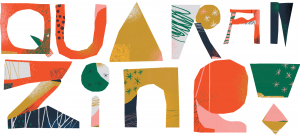How and why this project came to be
This project came about from Linn-Benton Community College’s Textbook Affordability Steering Committee brainstorming how to celebrate Open Education Week 2021 (March 1-5). The goal of the Committee was to lower course materials costs for students, and we had a lot to celebrate:
- Cumulative savings (based on new textbook price) from faculty adoptions of OER, library e-resources, and other freely available materials totalled an estimated $6,546,801 between 2015 and 2020.
- In spring 2021, 56% of LBCC courses had materials under $40 (the student-set affordable course material threshold), and 46% had free course materials.
- Savings from library e-textbooks increased 72% compared to spring 2019. Between March 1 and May 31, 2020, LBCC students and employees read 16,631 ebooks and watched 4,093 streaming videos through the library.
At the same time, we realized many members of our community were exhausted. A year ago, students, faculty, and staff had to transition rapidly to remote work and learning as a novel coronavirus swept the globe. While the pandemic was raging, we’d also collectively experienced shortages of basic sanitary goods, protests, changing government guidelines, devastating and unprecedented wildfires, and a tense election.
Many members of our community lost their homes, jobs, or lives. By Open Ed Week 2021, over half a million people in the United States had died of COVID-19, and 2.5 million people had died globally.[1] While vaccines were rolling out, many people were still dealing with severe crises.
We weren’t sure yet another Zoom meeting or email blast would be welcomed, but Forrest Johnson, PT Librarian and English Faculty, brought an idea to the table inspired by a project of the Corvallis Benton County Public Library: a zine, or digital time capsule, allowing everyone at LBCC to share original contributions reflecting on how they’ve been impacted and changed by the pandemic. The LBCC Quaranzine was born!
The goals were simply to give Roadrunners space to share reflections and artifacts from the past year and familiarize the community a little bit with open licensing and OER.
Is this an OER?
Initially, we planned for the entire Quaranzine to be open under a Creative Commons Attribution 4.0 (CC BY) 4.0, but then realized that would exclude some key content that creators wanted to keep as “All Rights Reserved.” It’s important to us to understand and clearly communicate the wishes of creators. Luckily, Pressbooks, the platform the Quaranzine is built on, allows different copyright information to be added to different pages of the book. So, this introduction, and any other content that doesn’t have other licensing or copyright information, is available under CC BY 4.0. Other contributions have different licensing, which you can find at the bottom of the page.
Open Educational Resources, or OER, are “any type of educational materials that are in the public domain or introduced with an open license.”[2] Most of this book has an open license. This reflects the reality of textbook affordability efforts at LBCC: OER are often used along with free library e-textbooks, free online resources, or low-cost homework platforms and texts. One goal of this project was educating our community about open licensing. So, is this book an OER? Sort of!
Invitation to contribute
Feel like you missed an opportunity to participate? One of the beauties of OER and online resources is that they can be updated! Email campd@linnbenton.edu or johnsof@linnbenton.edu to add your submission.
Notes on submissions
Did not censor
It is important to us that this project reflects the experiences of our contributors. Their views are their own and do not necessarily reflect the views of the editors, the Textbook Affordability Steering Committee, or Linn-Benton Community College.
Student contributions and order
Contributions are generally organized alphabetically, by contributor’s last name, within categories. Since we only received two student contributions, we placed those first within their category to highlight their experiences.
We were deeply moved by the breadth of ways our community responded to the pandemic, and we hope you are, too.
Dionna Camp, Forrest Johnson, and Michaela Willi Hooper
Quaranzine editors


